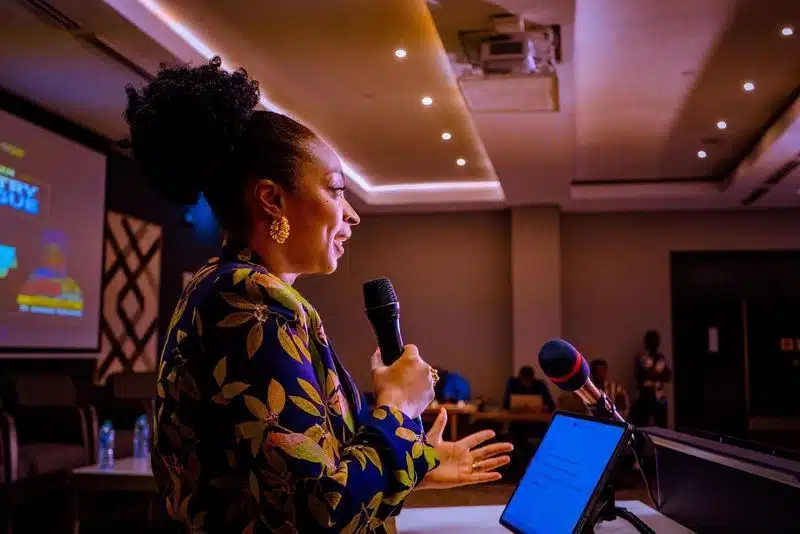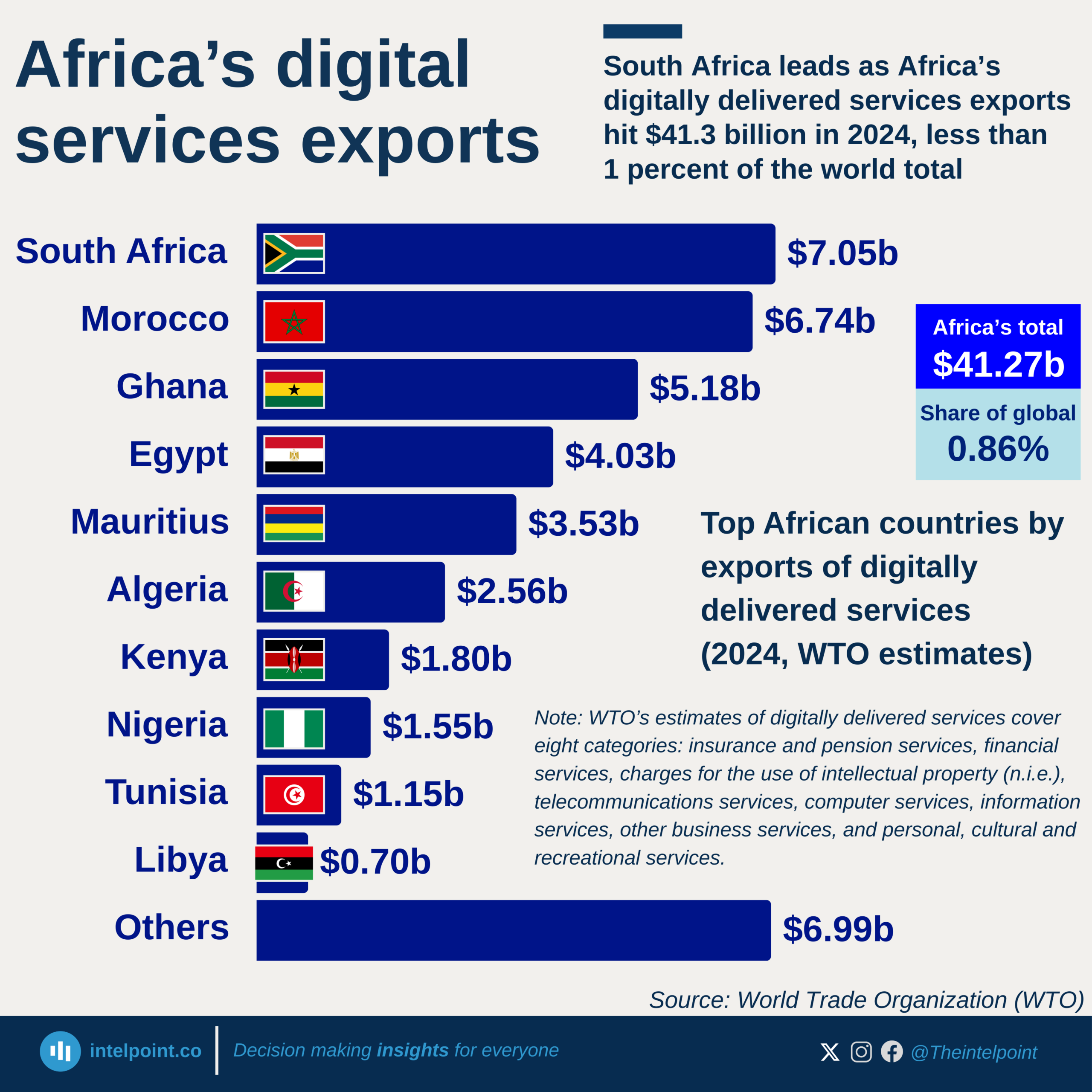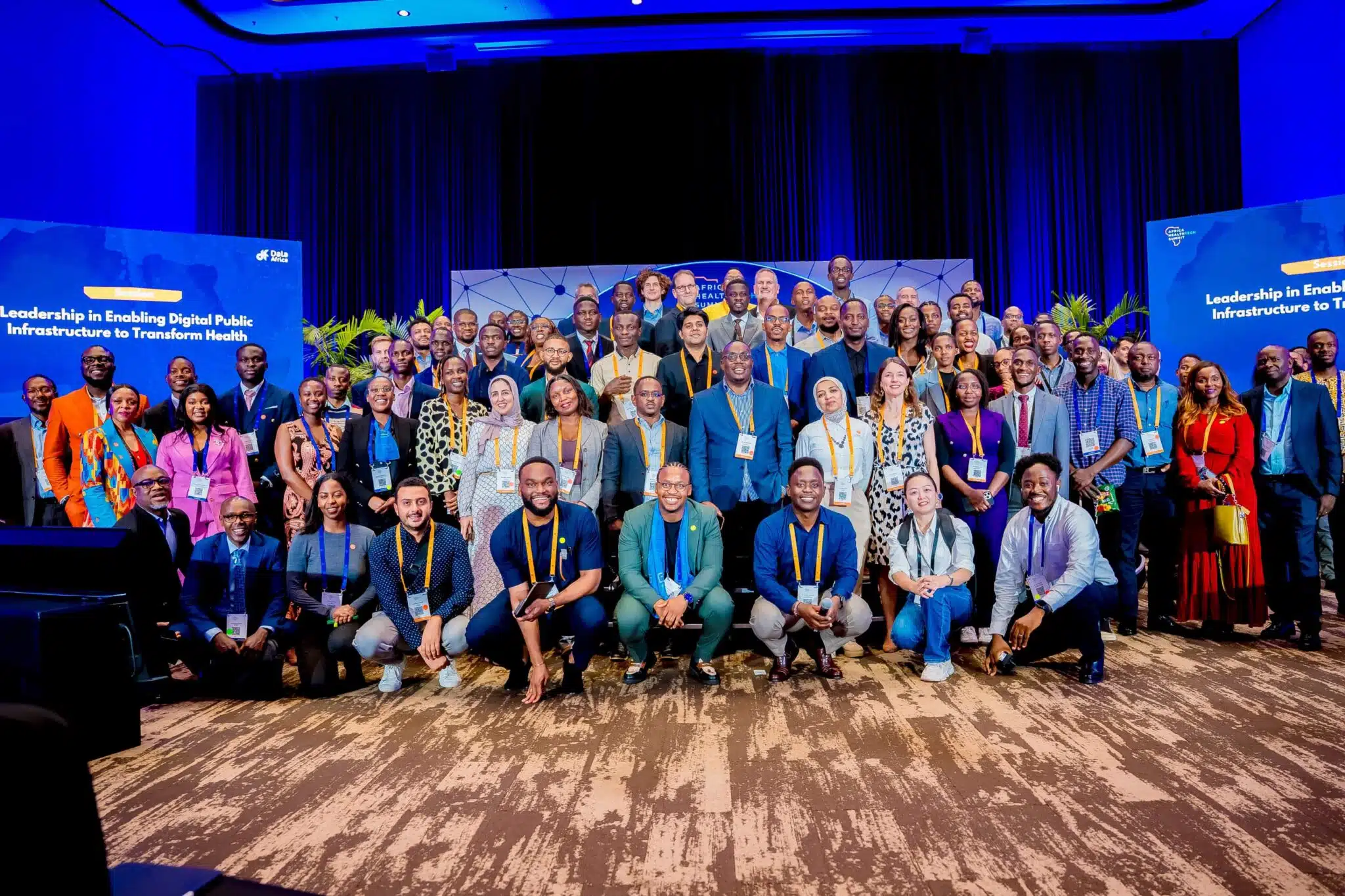Digitally delivered services are an increasingly important category in Africa’s trade basket. In 2024, digitally delivered services trade totalled $114.7 billion – $73.4 billion in imports and $41.3 billion in exports.
To put this in perspective, digitally delivered services trade represents 55% of the continent’s $208 billion in intra-African trade in goods in the same year.
Yet, Africa remains a marginal player on the global stage. The continent accounts for less than 1% of total digitally delivered services trade, valued at approximately $4.6 trillion in 2024.
Also, intra-African digitally delivered services trade is at embryonic levels, recorded at just 3% in 2021, with limited improvement in 2025. These numbers represent a missed opportunity to retain trade revenues, diversify our trade baskets, and achieve our longstanding ambition of continental integration.
The situation is also the lived experience of Nigerian and African technology innovators. They often struggle to export their services and expand their operations to other African countries due to complicated regulatory rules and procedures.
There is an urgent need to clarify national rules that govern digitally delivered services
Meet Hadiza, based in Nigeria and CEO of a software for small and medium sized enterprises (SMEs) to manage inventory, sales, and employees.
Over three years, she has onboarded 100,000 Nigerian SMEs and processed millions of transactions. In Nigeria, she is fully compliant with regulation governing financial transactions, tax, data protection, consumer protection, and intellectual property rights. After a social media campaign, over 500,000 SMEs in three other African countries downloaded her software.
Hadiza was excited and ready to onboard her new customers. But she found new, different and multiple problems.
One country required her to register a corporate entity with different documentation and capital requirements than those she used to obtain her license from the Corporate Affairs Commission in Nigeria.

Victoria Fakiya – Senior Writer
Techpoint Digest
Stop struggling to find your tech career path
Discover in-demand tech skills and build a standout portfolio in this FREE 5-day email course
This process was cost-intensive; she paid application fees to government, professional fees to a law firm, and raised capital to meet regulatory requirements. Then, her business was registered as an IT Consultancy, and not a software company, because her digital service did not fit into any existing criteria.
Another country allowed her to operate remotely, but asked her to register to pay a digital services tax. Regulators in the third country were entirely unresponsive to her calls and emails. And then for all three countries, she had to personally compile the various national rules governing advertising, taxation, financial transactions, data protection/governance, consumer protection, and intellectual property rights.
These experiences tempered Hadiza’s ambition to enter new African countries. It was cost and time intensive to wade through an opaque maze of experimentation with customers, cold calls and visits to regulators, as well as travel to various conferences.
After all these, she realised that what she built in Nigeria within three years would take a decade – and a fortune, to replicate across three more countries.
Nigeria’s policy and regulatory innovation for digitally delivered services to thrive at home and across Africa
However, we are on the cusp of change. The Protocol on Digital Trade of the African Continental Free Trade Area (AfCFTA) Agreement is our ambitious declaration of an integrated African digital market. This digital market is underpinned by market access for African digital products, including digitally delivered services.
We must now be visionary, deliberate and collaborative to realise our goal. As a first step, our efforts should be grounded in enabling national policy and regulatory systems.
Nigeria was appointed as African Union co-Champion of the AfCFTA Protocol on Digital Trade in February 2025. Immediately after, the Federal Ministry of Industry, Trade and Investment (FMITI) commenced ratification of the AfCFTA Protocol on Digital Trade to ensure it is fully enforceable in Nigeria’s regulatory system.
FMITI also pioneered the first comprehensive mapping of digitally delivered services in Africa, and possibly in the world. This mapping ensures that government understands the market access ambitions of Nigerian firms. It has, importantly, provided a clear three- tier classification system for Nigeria’s digitally delivered services:
- Core Digital Services, such as software, for which there is no obvious traditional comparator.
- Digitally Deliverable Services or traditional services delivered through digital systems, such as telemedicine or remote consulting.
- Digital Marketplaces that aggregate consumers and service suppliers, whilst providing a suite of enabling services such as payments, identity verification and dispute resolution.
Digitally delivered services may fall into multiple categories, such as when telemedicine services are anchored on dedicated software and delivered through a digital platform that aggregates doctors and patients.
Similarly, digital marketplaces are powered by core digital services such as data analytics and digitally deliverable customer services. Our classification system ensures that both the key and less obvious attributes of digitally delivered services are captured and understood by government.
Over the next few months, our Corporate Affairs Commission will update our business registration system so that digital service firms are properly identified and categorised. Also, between 2025 – 2027, FMITI will roll out a pilot programme to support a minimum of 150 Nigerian firms to fully comply with domestic regulation, in preparation for exports to Africa.
To further support our core digital service firms and digital platforms, Nigeria is preparing comprehensive AfCFTA digitally delivered services market entry guides that explain the modalities to comply with market entry regulations and operate successfully across borders. Where possible, Nigeria will also enter into partnerships and other relevant arrangements with other AfCFTA State Parties.
Digitally deliverable services are not left out. Upon finalisation of ongoing processes for the domestication of AfCFTA Protocol on Trade in Services, Nigeria will benefit from relaxed market access terms in other AfCFTA State Parties. Priority sectors in the first round of liberalisation are Business Services, Communications Services, Financial Services, Transport and Tourism. FMITI will also continue to engage with other AfCFTA State Parties to foster meaningful market access for Nigerian traditional services delivered through digital channels. The relevant market access facilitation programmes for digitally deliverable services will be unfolded in due course.
Nigeria believes that national rules should not ringfence African innovators. Rather, these rules should ensure that our consumers are protected, while our digital services firms drive intra-regional trade, create jobs, and contribute to economic growth. For this to happen, we must move from regulatory fragmentation to regulatory collaboration.
Nigeria: Spearheading regulatory collaboration
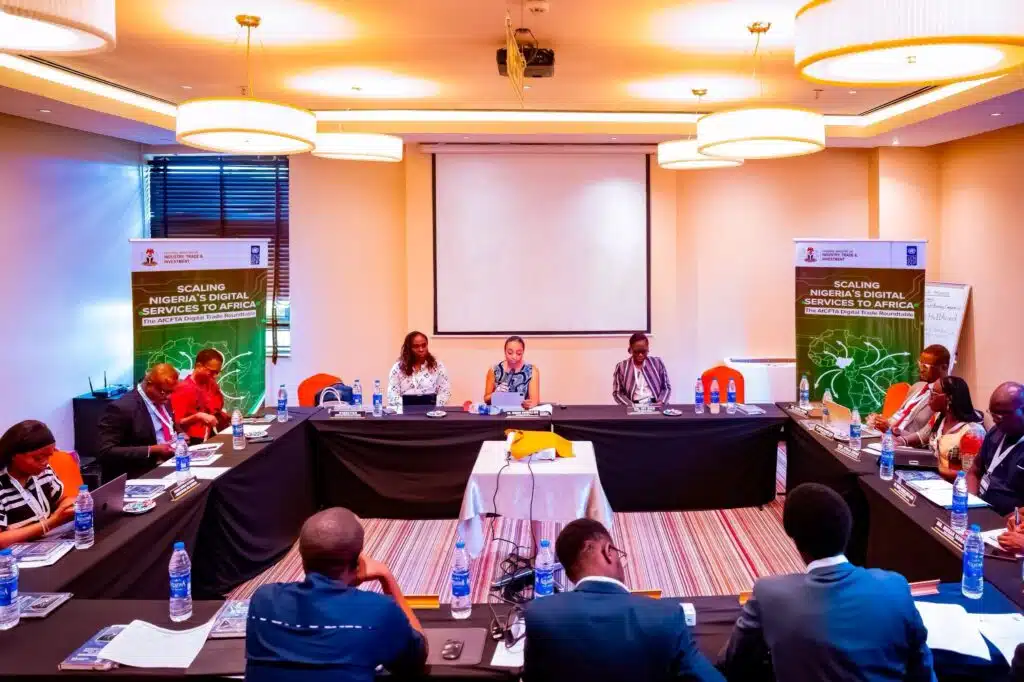
To overcome the challenge of regulatory fragmentation, in October 2025, Nigeria through FMITI convened the first AfCFTA Digital Trade Regulators’ Roundtable with Egypt, Ghana, Kenya, Nigeria, Rwanda, and South Africa.
This Roundtable was premised on our understanding of three validated critical realities.
First, that Nigerian firms have significant and tangible interest in exporting to other African markets. We received over 27,000 applications to participate in the Roundtable, from which an initial pilot group of 50 digital service firms was selected.
Second, that regulators are proactive and willing to facilitate market access. Through a dedicated business clinic, regulators from Egypt, Ghana, Kenya, Rwanda, and South Africa sat with Nigerian entrepreneurs, answering practical questions about licensing requirements and procedures.
Third, that the regulation of digitally delivered services is disparate and domiciled within various parts of government. This means that within countries, and regionally, there must be a coordinated approach.
The Roundtable was energetically and collaboratively driven by Ministries Responsible for Trade, Central Banks, Securities Commissions, Competition Authorities, and Data Protection Commissions.
Building on the learnings from this Roundtable, Nigeria, Egypt, Ghana, Kenya, Rwanda and South Africa have forged a working relationship to support digitally delivered services firms explore and navigate their markets.
Our call for continental regulatory collaboration
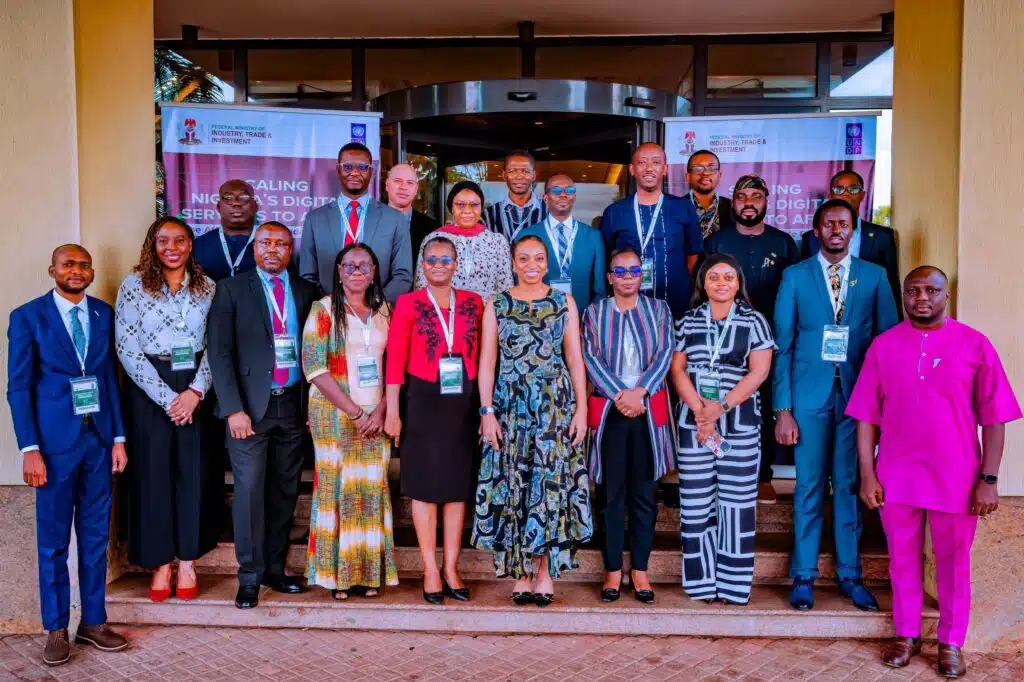
Nigeria will continue to convene other willing AfCFTA State Parties to dismantle the barriers to intra-African digitally delivered services trade.
We further demonstrate our commitment to collaboration through our offer to extend our experience and tools to other AfCFTA State Parties.
Together, we must construct the regulatory infrastructure that will determine whether African digital service firms like Hadiza’s will serve a large continental market, or remain fragmented across 55 countries.

